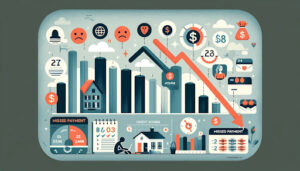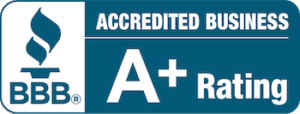What is Foreclosure and Its Alternatives
Definition of Foreclosure
Foreclosure occurs when a borrower’s inability to make mortgage repayments causes lenders to take over ownership of properties they have used as collateral; typically, this happens because borrowers skip several repayments signifying their incapability of meeting their home loan obligations.
Consequently, such lending institutions dispose off such assets in order to recoup the outstanding balance of the credit facilities extended.
Not only will you lose the place where you live but also get problems even when trying to take short term loans in the future. With a clear understanding of the processes involved in the foreclosure process you can help yourself not enter into further debts by identifying other available choices for example bankruptcy or short sales.
Alternatives to Foreclosure: Short Sale, Bankruptcy, and Loan Modification

When you are faced with foreclosure, there are several other options to think about that might be less damaging to your credit rating. One such option is a short sale where one sells off the property for less than what they owe on it including an approval from their lender hence preventing a blow to their full credit record.
While quite harsh, bankruptcy discharges and restructures debts which in turn provide a new beginning whose aftermath can be felt in terms of one’s credibility with others around him/her forever.
Loan modification on the other hand entails talking your bank into changing conditions governing how much money you should pay him back each month; such as lengthening repayment periods or lowering interest rates so that it becomes easier for you to make those monthly payments.
Through exploring these paths one may be able to avoid such harsh consequences as those caused by lack of settling real estate loans duly.
The Impact of Foreclosure on Credit Scores

foreclosure can lead to large negative effects on your credit report, normally prompting a decrease in 100 to 160 points or even more. This sharp drop occurs due to the fact that foreclosure is viewed as a significant negative occurrence by credit rating agencies.
The severity changes but generally higher credit ratings suffer more significant declines than lower ones. You might find it hard to get new credit cards or loans during such falloff; besides if you get one it will be on worse terms as well as higher interest charges applied.
It is important to be aware of how this aspect can affect your finances so you can plan ahead in order to repair them while rebuilding your reputation with moneylenders.
How Missed Mortgage Payments Affect Your Credit History
Failure to make timely payments on your mortgage is usually the first sign that there’s a crisis affecting your finances and in turn will have a negative impact on your credit report. Your credit score goes down even more with each payment you fail to make and it will remain that way for seven years before it is removed from your credit report.
The longer this goes on, the higher credit scores, the worse off you are as far as creditworthiness is concerned which may lead you into trouble while securing new loans or enjoying lower interest rates.
It’s very important that you try to deal with situations of late payment promptly so as to minimize any destructive credit record over time.
Factors Affecting the Severity of Credit Score Drop

Several factors will determine how much your credit rating will suffer from foreclosure; these include your original credit rating and the total amount of missed payments. A higher credit score is in most cases more susceptible to serious economic losses, because they can afford them.
A remarkable decrease in credit scores may result from the interaction between more than one missed payment and foreclosure; this makes the recovery process long and difficult (Ellis, 2007).
Knowledge about this aspect may enable a person to handle it more effectively and predict its consequences more accurately.
How Credit Bureaus Report Foreclosure
Credit reporting agencies are critical players in determining Foreclosure’s impact on your credit. The mortgage payments and other credit activities are documented by lenders. By the credit bureaus, they record the foreclosures in a situation where you are unable to pay all the outstanding debt you owe.
They indicate when a person failed to pay his/her first installment or when real estate property is being taken over by banks due to unpaid amounts on your credit report. And this information is reported within the next seven years in a row that it continually affects your score.
Erudition on how credit bureaus capture foreclosure helps in appreciating foreclosure’s full scale influence unto consumer’s credit assessment.
How Lenders Report Foreclosure to Credit Bureaus
The Role of Credit Bureaus in Credit Scoring
In order to continuously update your credit file, lenders submit data such as missed mortgage payments or foreclosure proceedings. Subsequently, this data is utilized by credit rating systems like FICO when assigning credit scores.
You can better appreciate the overall implications of this eventuality on both your present and future access to credit by knowing about how it is reported within credit reference bureaus’ records.
Long-Term Consequences of Foreclosure

The foreclosed property owner also has to get another place to live, which can be more expensive than before since they are likely no longer eligible for the preferential terms attached to their old mortgage agreements due to the structure as well as other circumstances surrounding this kind of property acquisition which usually imply higher mortgage interest rates than those initially offered when purchasing an equivalent property.
So far, regular increments reflect an increase in the real estate market prices. In fact, every day, there is someone out there willing to buy the property even without bargaining for it.
On the other hand, other people might opt for paying the mortgage payment although it seems difficult for them because they hope prices will fall down soon so that they clear their debts while purchasing at low prices rather than selling at current high prices.
How Long Does a Foreclosure Stay on Your Credit Report?
The date when a borrower misses the first payment which leads to foreclosure is the day one whereof the act is reported. The duration is long enough to put one out of dimension in times of need for loans for further life re-building.
When they find somebody else wanting to give out more cash or when their applications get approved there could be increased charges due to foreclosure presence in these clients credit scores.
To recover from such financial situations as these, it becomes necessary that one understands the timeline on which they had defaulted so that they start working on their scores gradually.
The Effect of Foreclosure on Your Credit History

Rebuilding Credit After Foreclosure
You need to rebuild your credit after foreclosure in order to restore your financial well-being. You could begin with paying any outstanding bill then ensuring that all immediate payment are met on time.
In this respect, responsibly using secured credit cards may go a long way in restoring one’s credit as it reports positive payment history to credit bureaus.
On a positive note, consulting a credit counselor may give some directions on how to enhance your credit scores. In conclusion it is worth mentioning that it takes time and determination to overcome foreclosure.
Catching Up on Overdue Bills

Settling bills that are in arrears is an essential part of rebuilding your credit after losing your home for most reasons. Make sure to first pay any additional mortgage debt plus other credits that are outstanding.
To prevent additional negative reporting, ensure you honor current payouts on time for all credit cards. When it comes to overdue bills, the credit bureau will look at how creditworthy you have been in due course before rating you as such. In general terms, this active stance makes a huge difference in your financial soundness.
Using Secured Credit Cards to Rebuild Credit
A credit card secured with a deposit restores your credit after loan default effectively. The latter is set as your limit. If one uses their secure credit card well- for example, spending little money and then settling all the expenses during each period- he/she may create a history of reliable payments which will be seen by the ratings agencies.
Eventually these can translate into better scores on one’s record sheet since bureaus monitor all these transactions made on such a few credit card balances over time.
It becomes an applicable approach for proving worthiness before creditors and mending broken financial conditions.
Seeking Professional Help to Improve Credit Scores

Avoiding Foreclosure and Its Consequences
Paying mortgage payments on time is the best way of keeping foreclosure at bay therefore important for safeguarding both your finances and credit rating.
Do not hesitate to engage your lender immediately if you are struggling financially because loan modifications or short sales are some of possible remedies to this problem.
A credit counseling session would be crucial in helping you come up with ways to better manage your money hence preventing foreclosures.
You will build a strong finance system through this preventive action, eventually making you attain a healthy credit profile alongside other gains accrued from it.
Tips to Avoid Foreclosure by Making Timely Mortgage Payments
- Prepare a budget: Monitor your income and cost to ensure that you repay your mortgage on time.
- Establish automatic payment: Make certain that each month your mortgage is paid in good time.
- Prioritize on mortgage repayments: Your mortgage should be the first thing on your financial agenda.
- Set aside money for a crisis fund: Ensure there are funds intended to cater for unforeseen events thus no delays in payments.
- Obtain financial help: In order to effectively handle your finances, meet a financial advisor to avoid foreclosure.
Importance of Communication with Lenders to Avoid Foreclosure
It is imperative that you keep in touch with those who loan you money when times are tough financially.
The majority of them will only take action after many default payments have been made so that you may be able to talk things over with them.
If one tells them what has happened it could result in suggestions that include alteration of debt terms or getting an excuse. Hence, there will be no house seizure hence preserving your name in the list of reliable borrowers.
If you communicate well there is always room for a win-win situation which will prevent the aggrieved party from taking harsh actions on you.
Conclusion
Summary of Foreclosure’s Impact on Credit Scores and History
Foreclosure is very bad for your credit; it makes it fall greatly and remains on your credit report for seven years.
In addition, it reduces the chance of getting a new loan while increasing the possibility of paying more interest on them.
Its full effect helps you to plan early enough and do what should be done to come out of it.
The faster you address defaulting in remits of funds, the more seamless it becomes managing your finances by looking at foreclosure possibilities.
Final Thoughts on Rebuilding Credit After Foreclosure
During the post-foreclosure period, someone can decide to work towards improving his status. Paying off debts that are in arrears, paying other debts on time and getting secured credit cards can help in building a good payment record.
Consultation of a specialized person can also give direction on how to carry on.Reclaiming control over your finances might be achieved by following all these steps leading into gradual enhancement of your credit rating.
Recovery takes time while full financial recuperation is achievable with diligence.
Advancing with Financial Stability
Apply these strategies so as to manage house foreclosure challenges and build good wealth once more. Recovering from it can be done by following this advice on managing your credit as well as taking some initiative towards improving the financial situation; these actions may enable you to move away from such banana peels in days to come.
Be sure that you stay updated, keep in touch with loaning institutions and consult experts as necessary thus making it easier for you to easily go into financial rehabilitation mode if need be.
This way one will be able to rise again after a fall caused by his own errors of not paying back loans since he is persistent about regaining a good reputation despite all odds presented by past mistakes in his life.
The Importance of Patience and Persistence
It is impossible to rebuild your credit in one day after foreclosure; you need to be patient and keep going. Begin by establishing feasible money goals and sticking with them constantly while working on them.
To monitor how far you have come along this path, always check the correctness or updates in your credit score at regular intervals.
As you go, take time to celebrate minor accomplishments like clearing one debt or attaining a better rating.
These little victories serve as steps for overall financial healing since they maintain your morale up to that time when everything else will be alright with your finances.
Positive Mental Attitude and Looking Ahead

The influence of foreclosure can be saddening as maintaining a positive attitude is the key. Instead of brooding over the previous financial missteps, concentrate on how far you have come.
Every effort you make to restore your borrowing ability is a step closer to safer financial standing. It should be noted that some individuals are able to redeem themselves credit wise including realizing their desired dreams post foreclosure.
If you keep a habit of staying optimistic and moving forward you will always find such moments as trials turning into chances for development and betterment.
Finally,
It is essential to know how foreclosure affects the state of your credit, in order to manage it and plan for the future. It is notable that losing one’s home may force you into dire straits financially similar to what occurred following the global financial crisis of 2008.
However, immediate action geared towards credit repair can guarantee lasting recovery from debts in future.
This can be achieved by clearing all outstanding household debts, employing secure credit cards, hiring financial advisors and discussing with loan givers.
Nevertheless, you need time, consistency in doing things right as well as being positive minded to beat up such predicaments thereby achieving sound money matters after the shame that comes from poverty again due to loss of an own house through lawsuits or sale auctioned by banks for instance.





























